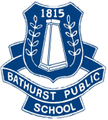
Kindergarten 2021
Kindergarten students for 2021
Health and Wellbeing
Did you know?
It’s important to keep the school informed of any changes to your
child’s health.
If your child is sick at school
If your child gets sick or injured at school, the school will contact you. If your child is ill, they will go to an area where they can lie down and be monitored. You will be called to come and collect your child if they are too sick to go back to the classroom. For this reason, it is important to keep your contact details up to date with the school, including an alternative contact – such as a relative or neighbour – the school can call should you be unavailable.
If your child is sick at home
From time to time your child may get sick and display any number of symptoms that mean it’s best to keep them away from school and see your doctor. Some of these symptoms include:
• a fever of 38ºC or above
• vomiting or diarrhoea
• severe cold or flu symptoms
• rashes of an unknown origin.
Head lice
Don’t be alarmed if an outbreak occurs. Head lice can be very annoying, but thankfully they will not harm your child’s health and have no bearing on a child’s personal hygiene.
Preventing head lice
• Regularly check your child’s hair.
• Keep long hair tied back or braided.
• Keep a fine-toothed comb in the bathroom and encourage your family to use it when they wash their hair.
Treating head lice
Daily combing with a white hair conditioner using a fine-toothed comb will help get rid of head lice and their eggs (nits).
health.nsw.gov.au/environment/headlice
Allergies and asthma
It is important for you to inform the principal and the school if your child has asthma or allergies – not just those diagnosed as severe or food allergies.
Anaphylaxis is a severe and sudden allergic reaction to allergens such as nuts or shellfish, or insect bites. If your child is diagnosed with asthma or at risk of an anaphylactic reaction, you must provide the school with information from your child’s doctor, including an Action Plan for Anaphylaxis in accordance with the Australasian Society of Clinical Immunology and Allergy (ASCIA). The school will develop an individual health care plan to describe your child’s needs and how the school plans to meet these needs during the school day, on excursions and in other school activities such as sport. Schools and parents work together to put arrangements in place for health care support. Information from the child’s doctor that you provide will inform the planning process.
Sun safety
Schools promote sun-smart behaviour by encouraging students and staff to Slip, Slop, Slap, Seek and Slide. Sun-safe uniform items – including hats that protect the head, neck and ears – are included in school uniforms. School staff encourage students to play in the natural and built shade environments around the school. Most schools have a no hat, no play policy so your child will need their hat to play with their friends at recess and lunch.
You can protect your child from the damaging effects of UV radiation by applying sunscreen each morning before they leave for school and ensuring they are wearing a sun-safe hat. Children can also wear sunglasses at school to protect their eyes from
sun damage.
cancercouncil.com.au/cancer-prevention/sun-protection
education.nsw.gov.au/health-care-procedures
Join Daisy on her first day of school. Who will she meet? What will she learn? And will she have fun? The book shows that school can be an exciting place where anything is possible. Enjoy reading this book with your child, looking at the pictures, and talking about school together.
DAISY'S FIRST DAY IS NOW WATCHABLE click here


